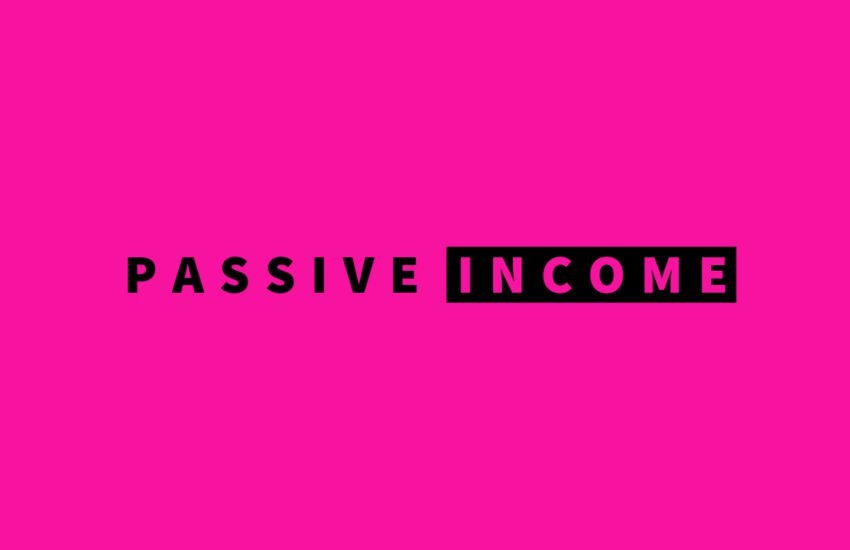How to Prevent Spam Comments on Your Blog Posts
As a blogger, one of the challenges you may face is dealing with spam comments on your blog posts.
Spam comments can be annoying, time-consuming, and can negatively impact the user experience on your blog.
Fortunately, there are several effective strategies you can implement to prevent spam comments and ensure a clean and engaging comment section.
- Practical Tips to Stop Spam Comments
- Conclusion
- Frequently Asked Questions
- 1. What is spam comment?
- 2. Why are spam comments harmful?
- 3. What are some common characteristics of spam comments?
- 4. How do spammers find my blog to leave comments?
- 5. What are some strategies for preventing spam comments?
- 6. Should I use plugins or software to prevent spam comments?
- 7. How does Akismet work to prevent spam comments?
- 8. What are some best practices for moderating comments?
- 9. Can I prevent spam comments without affecting legitimate comments?**
- 10. Are there any legal implications of allowing spam comments on my blog?
- 11. Should I disable comments altogether to avoid spam?
- 12. Is there a difference between spam comments and legitimate comments with links?
- 13. How can I encourage genuine engagement while deterring spam?
- 14. Are there any SEO benefits to preventing spam comments?
- 15. Can I manually approve comments to prevent spam?
- 16. What should I do if I accidentally mark a legitimate comment as spam?
- 17. Are there any automated tools that can help prevent spam comments?
- 18. How effective are spam filters at preventing spam comments?
- 19. Can I report spam comments to authorities or internet service providers?
- 20. Should I publicly address the issue of spam comments on my blog?
- 21. How can I identify and differentiate between spam comments and genuine ones?
- 22. Are there any specific keywords commonly used in spam comments?
- 23. Should I require users to create accounts to comment on my blog?
- 24. How often should I update my spam prevention measures?
- 25. What should I do if I receive a large influx of spam comments?
- 26. Are there any legal requirements for disclosing how I handle comments on my blog?
- 27. Can I monetize my blog without attracting spam comments?
- 28. How can I stay informed about new spam tactics and trends?
- 29. Should I publicly blacklist known spammers on my blog?
- 30. What steps should I take if my blog becomes the target of a spam attack?
Practical Tips to Stop Spam Comments
In this article, we will discuss some practical tips to help you stop spam comments on your blog posts.
1. Enable Comment Moderation
One of the simplest and most effective ways to prevent spam comments is by enabling comment moderation on your blog.
Comment moderation allows you to review and approve comments before they are published on your blog. This gives you control over what appears in the comment section and helps filter out any spam or irrelevant comments.
2. Use CAPTCHA or reCAPTCHA
CAPTCHA (Completely Automated Public Turing test to tell Computers and Humans Apart) or reCAPTCHA is a widely used security measure to prevent spam comments.
By adding a CAPTCHA or reCAPTCHA to your comment section, you can ensure that only real users can submit comments.
CAPTCHA typically involves solving a simple puzzle or entering a code, while reCAPTCHA uses advanced algorithms to detect and block spam bots.
3. Install an Anti-Spam Plugin
If you’re using a blogging platform like WordPress, you can take advantage of anti-spam plugins to automate the process of blocking spam comments.
Plugins like Akismet, Anti-Spam Bee, and WP-SpamShield are popular choices that analyze comments and filter out spam based on various criteria.
These plugins can significantly reduce the amount of spam comments you receive.
4. Close Comments on Older Posts
Spammers often target older blog posts that have been around for a while.
By closing comments on older posts, you can prevent spammers from targeting them. Most blogging platforms allow you to set a specific time period after which comments are automatically closed.
This not only helps prevent spam but also encourages engagement on newer posts.
5. Use Comment Blacklists
Comment blacklists are a useful tool to block comments containing specific keywords or URLs commonly associated with spam.
You can create a list of words, phrases, or URLs that are often found in spam comments and configure your blogging platform to automatically mark or block such comments.
Regularly updating and maintaining your comment blacklist can help keep spam at bay.
6. Require User Registration
Requiring users to register before they can comment on your blog can be an effective way to prevent spam.
By implementing user registration, you can ensure that only genuine users who are willing to invest the time and effort to create an account can leave comments.
However, keep in mind that this may also deter some legitimate users who prefer not to register.
7. Educate Your Users
Informing your readers about the importance of relevant and meaningful comments can help discourage spam. Encourage your users to engage in meaningful discussions and provide valuable insights.
By setting the right expectations and fostering a community of genuine contributors, you can create a positive environment that discourages spammers.
8. Regularly Monitor and Moderate Comments
Even with the above measures in place, it’s essential to regularly monitor and moderate the comments on your blog.
This allows you to quickly identify and remove any spam comments that may have slipped through the filters. Regular moderation also helps maintain the quality and integrity of the comment section.
Conclusion
Preventing spam comments on your blog posts requires a combination of proactive measures and ongoing vigilance.
By enabling comment moderation, using CAPTCHA or reCAPTCHA, installing anti-spam plugins, closing comments on older posts, using comment blacklists, requiring user registration, educating your users, and regularly monitoring and moderating comments, you can effectively combat spam and create a welcoming and engaging environment for your readers.
Frequently Asked Questions
1. What is spam comment?
A spam comment is an unsolicited comment typically posted on a blog, website, or social media platform. These comments often contain irrelevant or promotional content, links to unrelated websites, or attempts to manipulate search engine rankings.
2. Why are spam comments harmful?
Spam comments can harm your website’s reputation, decrease user experience, and potentially affect your search engine rankings. Additionally, they can waste your time and resources if you need to manually moderate or remove them.
3. What are some common characteristics of spam comments?
Common characteristics of spam comments include generic or irrelevant content, excessive use of keywords or links, grammatical errors, and comments that are not related to the topic of the blog post.
4. How do spammers find my blog to leave comments?
Spammers often use automated tools to find and target blogs. These tools can search the internet for blogs based on keywords, URLs, or other criteria. Additionally, some spammers may manually search for blogs to target.
5. What are some strategies for preventing spam comments?
One strategy is to use a captcha or other form of verification to ensure that commenters are human. Additionally, you can use moderation tools to review comments before they are published and blacklist known spam IP addresses or keywords.
6. Should I use plugins or software to prevent spam comments?
Yes, using plugins or software specifically designed to prevent spam comments can be an effective strategy. Popular options include Akismet, Disqus, and reCAPTCHA.
7. How does Akismet work to prevent spam comments?
Akismet is a spam filtering service that uses algorithms to analyze comments and determine whether they are likely to be spam. It compares comments against a database of known spam and allows you to review and approve or delete suspicious comments.
8. What are some best practices for moderating comments?
Best practices for moderating comments include regularly checking for new comments, responding to legitimate comments in a timely manner, and removing or marking as spam any comments that violate your website’s guidelines.
9. Can I prevent spam comments without affecting legitimate comments?**
Yes, you can use moderation tools and spam filters to prevent spam comments while still allowing legitimate comments to be posted. However, it’s important to regularly review comments to ensure that legitimate comments are not mistakenly marked as spam.
10. Are there any legal implications of allowing spam comments on my blog?
While allowing spam comments on your blog may not have direct legal implications, it can negatively impact your website’s reputation and potentially violate the terms of service of your hosting provider or blogging platform. Additionally, some jurisdictions have laws regulating unsolicited commercial communications, which could potentially apply to spam comments.
11. Should I disable comments altogether to avoid spam?
Disabling comments entirely may prevent spam, but it also eliminates the opportunity for legitimate engagement and feedback from your audience. Instead, consider implementing spam prevention measures while still allowing comments.
12. Is there a difference between spam comments and legitimate comments with links?
Yes, spam comments often contain irrelevant or promotional content and may include multiple links to unrelated websites. Legitimate comments with relevant links, such as a source or additional information, contribute to the discussion and are not considered spam.
13. How can I encourage genuine engagement while deterring spam?
Encourage genuine engagement by asking questions, responding to comments, and fostering a sense of community on your blog. Additionally, implementing spam prevention measures can help deter spammers while still allowing legitimate comments.
14. Are there any SEO benefits to preventing spam comments?
Yes, preventing spam comments can have SEO benefits by improving the overall quality of your website’s content and user experience. Search engines may prioritize websites with high-quality content and user engagement in search results.
15. Can I manually approve comments to prevent spam?
Yes, manually approving comments can be an effective way to prevent spam, especially for smaller blogs with low comment volume. However, it may not be practical for larger blogs with high comment volume.
16. What should I do if I accidentally mark a legitimate comment as spam?
If you accidentally mark a legitimate comment as spam, you can usually undo the action through your blog’s moderation interface. Additionally, you can whitelist the commenter’s email or IP address to prevent future comments from being marked as spam.
17. Are there any automated tools that can help prevent spam comments?
Yes, there are many automated tools available to help prevent spam comments, including plugins for popular blogging platforms like WordPress and software solutions that integrate with your website’s comment system.
18. How effective are spam filters at preventing spam comments?
Spam filters can be highly effective at preventing spam comments by analyzing comments for common spam characteristics and filtering out suspicious content. However, no spam filter is perfect, so it’s important to regularly review comments for false positives.
19. Can I report spam comments to authorities or internet service providers?
While reporting spam comments to authorities or internet service providers may not always be practical, you can report spam to your blogging platform or hosting provider. Many platforms have mechanisms in place to report and block spam.
20. Should I publicly address the issue of spam comments on my blog?
Addressing the issue of spam comments publicly on your blog can demonstrate transparency and reassure your audience that you are actively working to combat spam. Consider posting a brief message outlining your spam prevention measures and encouraging readers to report any suspicious comments.
21. How can I identify and differentiate between spam comments and genuine ones?
Spam comments often have certain characteristics such as generic content, excessive use of keywords or links, and irrelevant remarks. Genuine comments, on the other hand, tend to be more specific, relevant to the topic, and contribute to the discussion in a meaningful way.
22. Are there any specific keywords commonly used in spam comments?
Yes, spam comments often contain keywords related to products, services, or websites that the spammer is trying to promote. Common keywords include terms like “cheap”, “discount”, “buy now”, and URLs leading to unrelated websites.
23. Should I require users to create accounts to comment on my blog?
Requiring users to create accounts can be a barrier to participation and may discourage legitimate commenters. However, if spam comments are a significant issue, requiring accounts can help verify the identity of commenters and deter spammers.
24. How often should I update my spam prevention measures?
It’s important to regularly update your spam prevention measures to stay ahead of evolving spam tactics. Check for updates to your spam filter software, review your blacklist of spam keywords and IP addresses, and consider implementing additional measures as needed.
25. What should I do if I receive a large influx of spam comments?
If you receive a large influx of spam comments, consider temporarily disabling comments or implementing stricter moderation measures until the spam subsides. You can also adjust your spam filter settings to be more aggressive in filtering out suspicious comments.
26. Are there any legal requirements for disclosing how I handle comments on my blog?
While there may not be specific legal requirements for disclosing how you handle comments on your blog, it’s a good practice to include a comment policy or terms of use that outlines your moderation guidelines and spam prevention measures.
27. Can I monetize my blog without attracting spam comments?
Yes, you can monetize your blog without attracting spam comments by implementing spam prevention measures and carefully moderating comments. Additionally, you can use advertising networks and affiliate marketing programs that have spam prevention mechanisms in place.
28. How can I stay informed about new spam tactics and trends?
Stay informed about new spam tactics and trends by regularly reading industry blogs, forums, and news sources that cover topics related to internet security and spam prevention. Additionally, join online communities or mailing lists where webmasters and bloggers discuss spam prevention strategies.
29. Should I publicly blacklist known spammers on my blog?
While publicly blacklisting known spammers on your blog may seem like a deterrent, it can also attract unwanted attention and potentially escalate the situation. Instead, use moderation tools to block spam comments without publicly naming and shaming individual spammers.
30. What steps should I take if my blog becomes the target of a spam attack?
If your blog becomes the target of a spam attack, take immediate action to strengthen your spam prevention measures, such as tightening comment moderation settings and updating your spam filter software. You can also reach out to your hosting provider or blogging platform for assistance.


